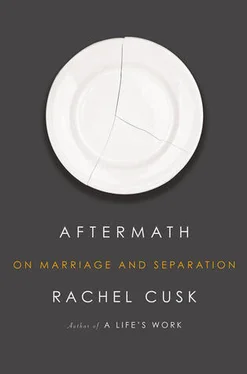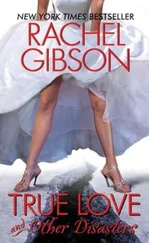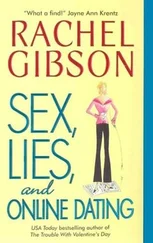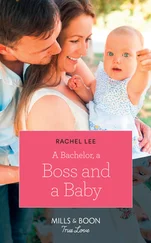Rachel Cusk - Aftermath - On Marriage and Separation
Здесь есть возможность читать онлайн «Rachel Cusk - Aftermath - On Marriage and Separation» весь текст электронной книги совершенно бесплатно (целиком полную версию без сокращений). В некоторых случаях можно слушать аудио, скачать через торрент в формате fb2 и присутствует краткое содержание. Год выпуска: 2012, Издательство: Farrar, Straus and Giroux, Жанр: Публицистика, Биографии и Мемуары, на английском языке. Описание произведения, (предисловие) а так же отзывы посетителей доступны на портале библиотеки ЛибКат.
- Название:Aftermath: On Marriage and Separation
- Автор:
- Издательство:Farrar, Straus and Giroux
- Жанр:
- Год:2012
- ISBN:нет данных
- Рейтинг книги:3 / 5. Голосов: 1
-
Избранное:Добавить в избранное
- Отзывы:
-
Ваша оценка:
- 60
- 1
- 2
- 3
- 4
- 5
Aftermath: On Marriage and Separation: краткое содержание, описание и аннотация
Предлагаем к чтению аннотацию, описание, краткое содержание или предисловие (зависит от того, что написал сам автор книги «Aftermath: On Marriage and Separation»). Если вы не нашли необходимую информацию о книге — напишите в комментариях, мы постараемся отыскать её.
Aftermath: On Marriage and Separation — читать онлайн бесплатно полную книгу (весь текст) целиком
Ниже представлен текст книги, разбитый по страницам. Система сохранения места последней прочитанной страницы, позволяет с удобством читать онлайн бесплатно книгу «Aftermath: On Marriage and Separation», без необходимости каждый раз заново искать на чём Вы остановились. Поставьте закладку, и сможете в любой момент перейти на страницу, на которой закончили чтение.
Интервал:
Закладка:
I don’t believe that, I say.
If they think you’re happy, they’ll be happy, my sister says.
Their feelings are their own, I say.
What I feel is that I have jumped from a high place, thinking I could fly, and after a few whirling instants have realised I am simply falling. What I feel is the hurtling approach of disaster. And I have believed they were falling with me, my daughters; I have believed I was looking into their hearts, into their souls, and seen terror and despair there. Is it possible that my children are not windows but mirrors? That what I have seen is my own fall, my own terror, not theirs?
I don’t believe that, I say again.
You have to believe it, she says.
On the walk back from the station the rain stops. The sun gushes, metallic and rich, through the rending clouds. A fresh wind comes gusting up the streets after their cleansing. A feeling of freedom grips me and whirls me around, the feeling that I need recognise no authority, need serve no greater structure, that I can do as I like. It will go away again, this feeling, I know, but for now it is here. I pass slumbrous houses, a locked church, a little tattoo parlour whose shopfront is obscured by sinuous images of snakes and flowers. I pass a restaurant and through its big windows see a family sitting at a table, the mother rising and reaching across to give something to the baby in its high chair. I can smell food, hear the clatter of dishes and the sound of people talking in the kitchen. A man in a chef’s apron is standing at a side door, smoking in the sunshine. He is only a few feet away from them but the family can’t see him: they are inside in the dining room, at a table spread with a white cloth. Through the window I can see the remains of their meal, the wreckage of cutlery and crumpled napkins and dirty plates, the broken crusts of bread lying against the white. A few minutes ago, when the rain was pouring down, they must have felt fortunate to be safe and dry inside, inside where everything exists to serve them. The woman holds her reaching stance: I watch her pale transverse form through the glass. She is like a statue, frozen in the moment of her motherhood, reaching across to her child. Her husband sits erect, looking straight ahead, as though something outside has caught his attention. It is as though, in that instant, he has seen the restaurant’s servitude become a trap: he looks across her leaning shape, looks out through the dark windows at the lifting day outside, the gold gushing sunshine, the freedom and freshness of the street. The man in the chef’s apron finishes his cigarette and goes back in. I pass on, thinking about the stag mask with its sweetly farouche expression; about my daughter’s heavy branched head turning on her delicate shoulders, about the strange relief I felt at having her masked and at the animal form she took, innocent of human pain. In that guise she could run as fast and as far as she liked to dodge the hunter’s arrows. She was free.
AREN’T YOU HAVING ANY?
I have a friend I’m too frightened to see. We used to be close, but when she calls during the smashed days of late summer I shrink from the sound of her voice. I read a story about a woman whose dead grandmother keeps calling the house, leaving long messages on the answering machine in which she bewails her purgatorial loneliness. The woman was fond of her grandmother but eventually she becomes angry, pitiless, shouting down the phone at the dead woman to go away. The calls are making her feel guilty.
My friend lives with her two daughters in a town about an hour from here, in a house an estate agent would describe as ‘deceptive’. From the outside it appears tiny: the deception lies in the fact that once the scale of the street has been removed, everything inside is at least in proportion to everything else. My friend is tiny herself, with child-sized hands whose bitten nails she hides in the long sleeves of her too-big jumpers. Once she lived in London with her husband, in a grand establishment where dinner parties were held from which one would come away feeling lacerated, as though the evening had contained a hidden blade that nicked the skin unnoticed. That blade, I suppose, was the animosity between man and wife that later dismembered their household and whole way of life so brutally. The husband met another woman, had new children, bought another grand house to replace the first; and my friend and her daughters were cut away, like the excess cloth fallen from a seamstress’s table that the pattern doesn’t require.
She moved to this cheaper, less fashionable location, got a job that fitted round her children’s school day, gave up drinking, took up yoga. She sees different people, has new opinions, a new haircut. Everything in her doll’s house is dainty and white and fresh. It is as though, in the absence of man, woman seizes the opportunity to recover her innocence, to make her world virginal again, to cleanse herself of the gore of sexuality and perfect her femininity. For a while I cleaned my own house incessantly, a maternal Lady Macbeth seeing bloodstains everywhere. The messy cupboards and cluttered shelves were like an actual subconscious I could purge of its guilt and pain. In those cupboards our family still existed, man and woman still mingled, children were still interleaved with their parents, intimacy survived. One day I took everything out and threw it away.
So I’m frightened of my friend. I don’t return her calls. Her existence is virtuous, honourable, yet the thought of it paralyses me with terror.
My daughter comes back from a school trip with a long face. I ask her how it was. It was all right, she says.
All evening she is quiet, but once she’s in bed, the covers pulled up to her chin, she begins to speak. The trip was to a local nature reserve, a place I know, the broad estuary banked by desolate wetlands and marshes. They were there all day. They were asked to choose partners, and each pair was given maps and information packs and questionnaires with which to negotiate their own way around. They were asked to make a note of birds and animals they saw, and to sketch the different wildflowers and grasses. It sounds like fun, I say. Well it was, she says, I mean it would have been. That’s what makes it so hard, she says, the fact that it would have been fun.
When the class chose their partners, standing in the car park beside the coach that had brought them there, the group was an odd number and my daughter found herself left out. I ask why she wasn’t in a pair with H, her longtime best friend. H chose someone else, she says. It seems that she and H are no longer friends, and that my daughter has been slower than H to make new alliances. I don’t blame her, she says. It’s not her fault. I’d probably have done exactly the same thing. But all day I had to go around on my own. And it was such a long day, she says, and so much walking and so many things we had to do. The teacher was meant to be her partner but it didn’t really work out like that. She kept having to go and help other people, and my daughter kept finding herself alone again.
I didn’t realise, I say, about you and H. You didn’t tell me.
It’s just as much my fault as hers, my daughter says.
What happened? I say.
My daughter shrugs.
She didn’t like it when I talked to other people, she says. I wanted to be her friend but I wanted to have other friends too. And she wanted it to be just us.
In the mirror my daughters and I look at ourselves. They are growing, getting bigger, and I am shrinking. I can’t eat, like a lovesick girl. But I am not a girl and this is grief. It is the opposite of excitement.
In the mirror their faces are young and strong and richly coloured, yet blunt and half-formed, full of the unknown, of sentences not yet uttered. Their heads reach my shoulder. I stand between them, recessed, shadowy, a creature concealed in the foliage of their girlish vigour. I feel I could stay hidden like this forever, hidden in this virginal life with my daughters, but then the image breaks apart; time resumes; they vanish from the mirror to do other things and I am left there, as though holding the long and close-typed book of myself in my hands.
Читать дальшеИнтервал:
Закладка:
Похожие книги на «Aftermath: On Marriage and Separation»
Представляем Вашему вниманию похожие книги на «Aftermath: On Marriage and Separation» списком для выбора. Мы отобрали схожую по названию и смыслу литературу в надежде предоставить читателям больше вариантов отыскать новые, интересные, ещё непрочитанные произведения.
Обсуждение, отзывы о книге «Aftermath: On Marriage and Separation» и просто собственные мнения читателей. Оставьте ваши комментарии, напишите, что Вы думаете о произведении, его смысле или главных героях. Укажите что конкретно понравилось, а что нет, и почему Вы так считаете.












